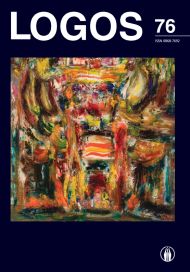Meno Sociologijos Tradicijos Transformacija Kritinėje P. Bourdieu Koncepcijoje
The Transformation of Art Sociology Tradition in the Critical Conception by P. Bourdieu
Author(s): Antanas AndrijauskasSubject(s): Epistemology, Aesthetics, Social Philosophy, Social Theory, Sociology of Culture, Sociology of Art
Published by: Visuomeninė organizacija »LOGOS«
Keywords: Bourdieu; sociology of art; socialization; habitus; nomos; capital; taste;
Summary/Abstract: The article considers Pierre Bourdieu’s principles of sociological analysis, his sociology of art, and its relations with earlier traditions of art sociology. It starts by discussing Bourdieu’s major works and paying peculiar attention to his concepts of socialization, social space, art, habitus, cultural field, artistic field, field of literature, nomos, cultural capital, symbolic capital, and taste. The article also considers Bourdieu’s sociology of meditation, the expertize of art consumers, the formation of personal symbolic capital, and the power games on the fields of art and literature. The author claims that the originality of Bourdieu’s sociology of art consists in its concentration on the social environment of an artist rather than on his personality and work. Such an approach is new in comparison with the earlier tradition of art sociology which orients itself to scientific methodology and rests on ideas of art history and the philosophy of art history. In other words, the tradition underlines the word “art” in the title of the discipline Art sociology whereas Bourdieu amplifies the importance of what encompasses the meaning of the second word – “sociology”. This shift signifies radical changes in the history of art sociology and methodology.
Journal: LOGOS - A Journal of Religion, Philosophy, Comparative Cultural Studies and Art
- Issue Year: 2013
- Issue No: 76
- Page Range: 142-161
- Page Count: 20
- Language: Lithuanian

